Humans
Sign up for our newsletter
We summarize the week's scientific breakthroughs every Thursday.
-
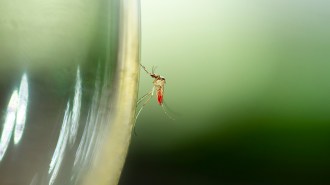 Humans
HumansWant to avoid mosquito bites? Step away from the beer
A Dutch music festival turned into a mosquito lab, revealing how beer, weed, sleep and sunscreen affect your bite appeal.
By Meghan Rosen - Health & Medicine
The brain preserves maps of missing hands for years
Countering the idea of large-scale rewiring, women whose hands were removed retained durable brain activity patterns linked to their missing fingers.
-
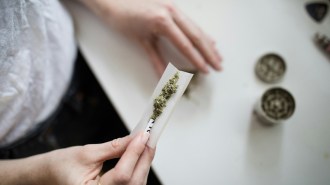 Health & Medicine
Health & MedicineChemicals in marijuana may affect women’s fertility
THC in marijuana may help eggs become ready for fertilization. But this may come at the cost of more eggs with wrong numbers of chromosomes.
-
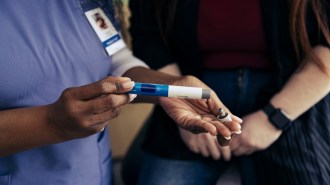 Health & Medicine
Health & MedicineDrugs like Ozempic might lower cancer risk
GLP-1 medications like Ozempic, Wegovy and Mounjaro might lower people’s risk of developing certain cancers, especially ones linked to obesity.
By Meghan Rosen -
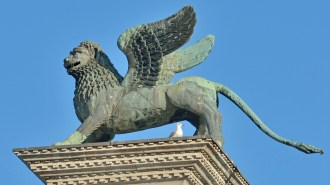 Archaeology
ArchaeologyVenice’s iconic winged lion statue originated in ancient China
European artisans turned a Tang Dynasty tomb guardian sculpture into a symbol of medieval Venetian statehood, researchers say.
By Bruce Bower -
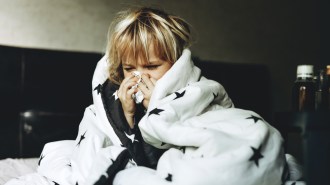 Health & Medicine
Health & MedicineA cold today helps keep the COVID away
A recent cold appears to be a defense against COVID-19 and a partial explanation for kids’ tendency toward milder coronavirus infections.
-
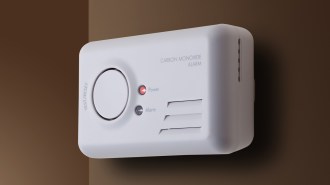 Health & Medicine
Health & MedicineA bioengineered protein may someday treat carbon monoxide poisoning
Mice treated with the protein, which is found in bacteria, quickly eliminated carbon monoxide from their body in their pee.
-
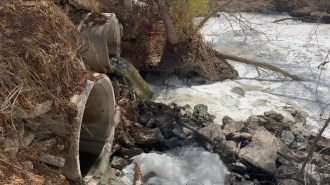 Environment
EnvironmentRiver turbulence can push toxic pollutants into the air
Levels of hydrogen sulfide gas soared near a raging section of the Tijuana River in San Diego, exposing residents to potentially harmful air pollution.
-
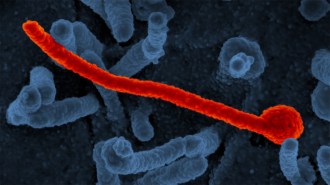 Health & Medicine
Health & MedicineA new antiviral blocks 6 deadly viruses in mice but faces a long road ahead
Scientists report that targeting sugars on virus surfaces stopped multiple infections, though the approach needs much refinement before human trials.
By Payal Dhar -
 Health & Medicine
Health & MedicineElderly cats with dementia may hold clues for Alzheimer’s
Immune cells in aging cat brains with amyloid beta destroy nerve endings, mimicking the progression of Alzheimer’s disease in humans.
-
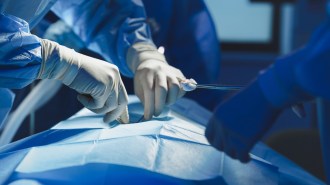 Health & Medicine
Health & MedicineScientists perform the first pig-to-human lung transplant
The genetically modified lung remained viable for nine days, but the recipient’s immune responses need more research, scientists say.
By Skyler Ware -
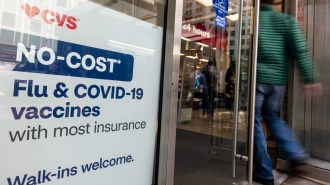 Health & Medicine
Health & MedicineShifting vaccine guidelines inject uncertainty into getting fall COVID shots
Respiratory viruses often surge in the fall. We asked an infectious diseases expert how best to protect ourselves given a shifting vaccine landscape.